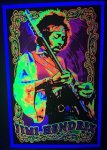Back in the day with the limitations of tape...people came into the studio to record, not to learn their songs and parts, so those first takes were about getting the feeling, and not as much about getting the part right.
Well, yes and no. Sometimes they came to record and not learn song parts. And at other times they didn't. For example, The Beatles' earlier albums consisted of material they had well and truly played in, so they didn't come in and have to learn the songs
Other than the Beatles' first album where they pretty much knew most of the songs and had been playing both the covers and originals, their MO in the studio didn't really change throughout their career as Beatles. Lennon and McCartney tended to have run the songs by each other if it wasn't one they'd jointly written and the first time Harrison and Starr would hear the songs to be recorded would be when they were actually in the studio. Even from "With the Beatles" in 1963 they were working things out in the studio. One of the things that makes George Harrison's guitar parts in songs like "And I love her" and the descending part in "Help !" so remarkable is that they were not part of the song when it was first presented to him. He worked them out as they recorded them and they weren't in some of the early takes. Looking through the log of their recording life, they used to do a ridiculous {to me} number of takes for each song, even in '63. The reason "Twist & shout" is so lionized is because it was recorded in only 2 takes and the first one is the one that was used.
They did demo some songs to each other before Revolver, the White album and Let it be but even then songs turned up in the studio that they had to learn.
If you know your song, your parts...the first few takes have all the magic.
They damn well
should do !
I think these days many people are actually learning their song and working out the parts while they do takes...and the DAW doesn't stop them from doing 100
That was the gift of multitracking to the world. I've long observed that multitracking changed songwriting and composition forever in rock circles although this was not apparent until the mid '60s. Once it dawned on artists that they could overdub and change the entire structure and nature of an already recorded song, then writers were no longer under any compulsion to present
fait accomplis. They could record the basics of a song without knowing what was going to fill it out. By 1966 the Beatles were recording the basic track without bass, not knowing what the bass part was going to be. Then they were leaving big gaps that were filled by they knew not what. Sometimes, it would be an orchestra, sometimes a sound effect, sometimes a particular instrument.
So that way of recording isn't something that came along with the DAW. It has been part of recording for far longer than it
hasn't been. "Bohemian Rhapsody" had its various parts added as the recording progressed. When originally recorded, there was no big long middle operatic section as we came to know it.
Speaking personally, I don't see the point of keeping multiple takes unless one is specifically looking to comp and repair bits here and there. I know straight off if I'm happy with a take. If I'm not, then here we go again.
If you know your song, your parts...
In a way, many home recorders are at the mercy of a double whammy. Many of us don't record with whole bands together at home and many of us have time and neighbour constraints. By the same token, when we do sit down to record, we don't have financial constraints so the pressure is off. That affords us the space to take our time if need be.
It's also stretched the definition of 'song' to some extent. Paul McCartney used to say that songs couldn't be written on a bass guitar; I always disagreed with him and still do. Many of my songs, indeed, pretty much every song I wrote in the first 8 years of playing and writing, were written on a bass guitar. Now I write on bass, on guitar, or in my head. And it means that I can work out an entire 'song' and record it with a drummer/percussionist and worry about filling it out later. There are songs I recorded between 2009 and 2012 on bass/drums, guitar/drums, guitar/percussion that I haven't added to yet even though I've got all the instrument parts and lyrics saved in embryo on the computer. What is recorded is merely currently unfinished. But they are still songs. When I get around to finishing them, some of the overdubs will be done first take. Some might take several or multiple takes. Some will be in sections.
I'm grateful for multitrackers. They've been liberating for me as a songwriter, a below average instrumentalist and a so~so singer. They enable the possibly feeble parts to be transformed into a solid, attractive and cohesive whole.






